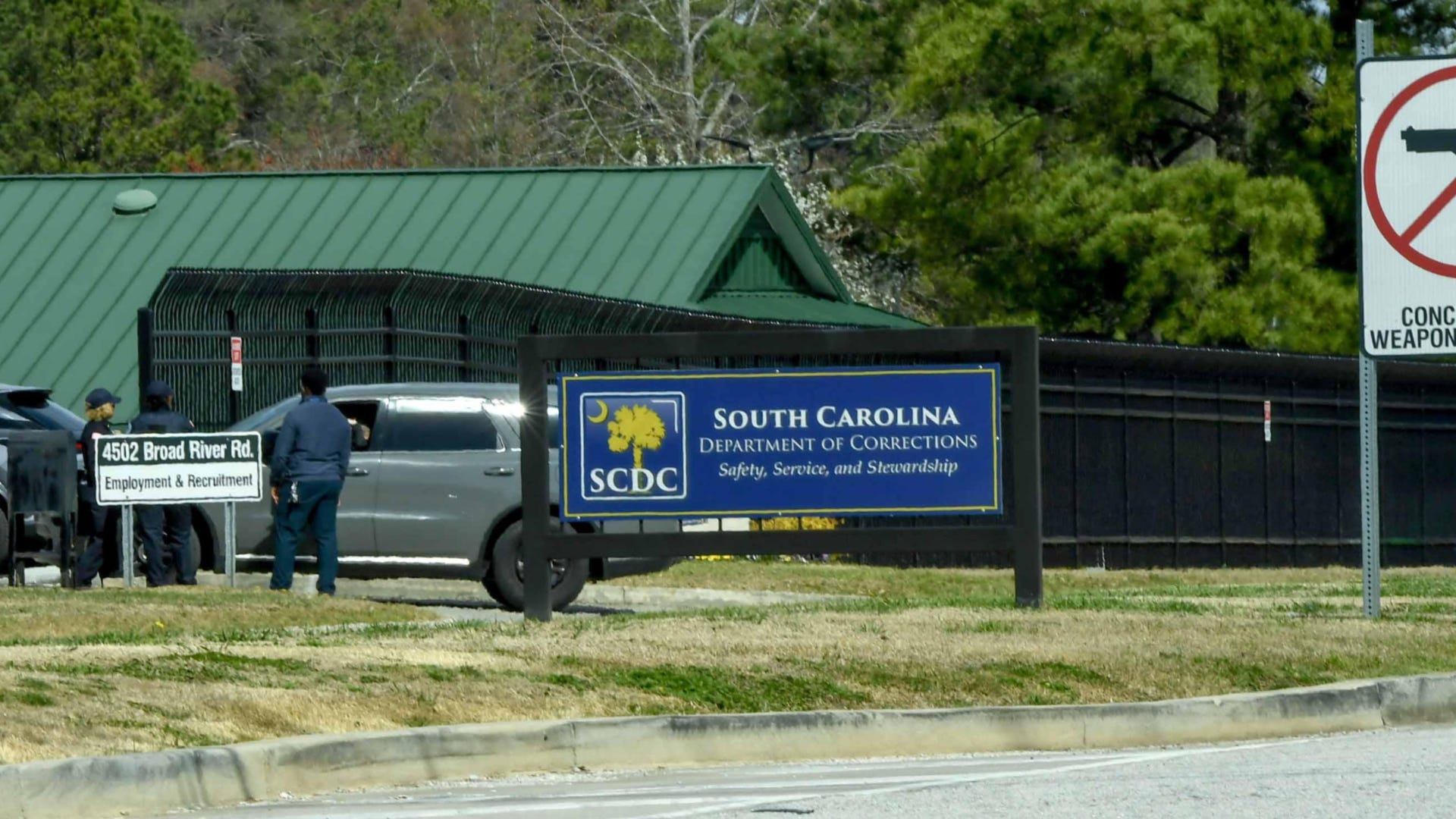Firing squad execution on Friday: Is Mikal Mahdi 'epitome of evil' or victim of the system?

- Mikal Mahdi is scheduled to be executed by firing squad in South Carolina for the 2004 murder of a police officer.
- Mahdi's attorneys are seeking a reprieve, citing his troubled childhood, a lack of adequate mental health care and a poor defense at trial.
- South Carolina is one of five states that allow execution by firing squad and executed another man with the method last month.
A South Carolina death row inmate whose attorneys say had a tortured past that included "thousands of hours" of solitary confinement is set to become the second man executed by firing squad in the U.S. this year.
South Carolina is set to execute 42-year-old Mikal Mahdi on Friday for the 2004 killing of 56-year-old Capt. James Myers, an off-duty Orangeburg Public Safety officer and beloved father, was ambushed, shot nine times and set on fire at the same spot where he had married his wife.
If Mahdi's execution moves forward, he will become the 12th inmate executed in the U.S. this year and the third in South Carolina.
Mahdi's attorneys are arguing that he should be spared because he never got the mental health care he "desperately needed" as a child who repeatedly threatened suicide and endured "extraordinary abuse and trauma."
During Mahdi's trial, prosecutor David Pascoe told jurors that Mahdi killed Myers partially because he knew he was a police officer.
"His heart and mind are full of hate and malice," Pascoe said at the time, according to an archived story in The Times and Democrat. "Mikal Mahdi's actions over the last several years have made him the epitome of evil."
As Mahdi's execution nears, Paste BN is looking at who he is, what he did and more about the rare execution method.
Why is Mikal Mahdi being executed?
On July 14, 2004, Mahdi − then just 21 years old − began a crime spree that spanned four states and included two murders.
Mahdi stole a neighbor's gun and station wagon in his home state of Virginia and headed to North Carolina, where he fatally shot gas station clerk Christopher Jason Boggs, who had asked him for identification when he tried to buy a beer, court records say.
Mahdi then went to South Carolina, carjacked a man in downtown Columbia and drove 35 minutes away to a Calhoun County gas station, where he spent at least 45 minutes struggling to get gas with a rejected credit card. A store clerk called police, prompting Mahdi to flee and ditch the car.
Shortly after, Mahdi arrived at the farm of Capt. James Myers. Mahdi broke into a shed, where he found guns and laid in wait for Myers, who had been at the beach that day celebrating the birthdays of his wife, sister and daughter, court records say.
When Myers arrived at the shed, Mahdi attacked, shooting him nine times, pouring diesel fuel on his body and setting him on fire before stealing his police truck and multiple guns, court records say.
Mahdi initially escaped to Florida but was spotted driving Myers' truck on July 21, 2004. Police arrested him after a short chase, and Mahdi later pleaded guilty to the murder.
Myers' wife, Amy Tripp Myers, was the one who found his body. The site of the murder was also where the couple had gotten married, according to her tearful testimony during Mahdi's trial.
"I found the love of my life, my soulmate, the partner that my life revolved around, lifeless, lying in a pool of blood and his body burned by someone who didn't even know him," she said through tears. "As I screamed those blood-curdling screams of pain and anguish, I instantly knew that the man with whom I had just spent the last six years of my life dreaming of a beautiful future was gone like a vapor. I died that night and haven't been the same person since."
In a letter written by Mahdi and shared by his attorneys, the inmate wrote: "I'm guilty as hell ... What I've done is irredeemable."
More about the firing squad method
Five states − South Carolina, Mississippi, Utah, Oklahoma and Idaho − have legalized firing squads as an execution method, most recently Idaho in 2023. A new bill proposed in Florida could pave the way for firing squad executions in that state, as well.
On March 7, South Carolina executed Brad Keith Sigmon by firing squad, the first execution in the U.S. using the method since 2010 and only the fourth since 1977.

Among the witnesses to Sigmon's execution was his attorney, Gerald “Bo” King.
"Brad’s death was horrifying and violent," King said in a statement at the time. "It is unfathomable that, in 2025, South Carolina would execute one of its citizens in this bloody spectacle."
David Weiss, Mahdi's attorney, said his client chose the firing squad for Friday's execution because it was "the lesser of three evils," saying he risked being "burned and mutilated" in an electric chair or "suffering a lingering death" by lethal injection.
South Carolina has defended the constitutionality of all its execution methods. The state's Attorney General's Office does not comment on pending litigation.
Who is Mikal Mahdi?
As a child, Mahdi's attorneys say he suffered years of physical and emotional abuse and was suicidal by the age of 8. By 9, he was diagnosed with major depressive disorder, and when teachers tried to get him specialized help, his father pulled Mahdi out of the school system and "subjected him to several years of paranoid, survivalist 'home schooling,'" they wrote in court records.
When he was 14, Mahdi first entered the juvenile justice system after being convicted of theft, and from then on, "spent most of the rest of his childhood in custody, often kept isolated and alone," they said.
Between the ages of 14 and 17, he spent more than 75 days in solitary confinement, and spent about eight more months in solitary by the time he was 21, as well as being on suicide watch, his attorneys said.
"Mikal desperately needed mental health care," his attorneys said in a news release. "Instead, he languished in juvenile prison, where he spent thousands of hours in solitary confinement. We now know that punitive isolation is deeply damaging to children."
Mahdi's attorneys argued to the South Carolina Supreme Court that the judge who sentenced him to death knew almost nothing about Mahdi's troubled past, information that could have resulted in a lighter sentence.
They have also criticized what they say was a weak defense at trial, arguing that Mahdi's attorneys at the time spent less than 30 minutes arguing against the death penalty. It "didn’t even span the length of a 'Law & Order' episode and was just as superficial," they said.
The South Carolina Supreme Court unanimously declined to spare Mahdi's life on Monday, allowing his execution to move forward.
Mahdi's last hopes for a reprieve lie with the U.S. Supreme Court and Republican South Carolina Gov. Henry McMaster.